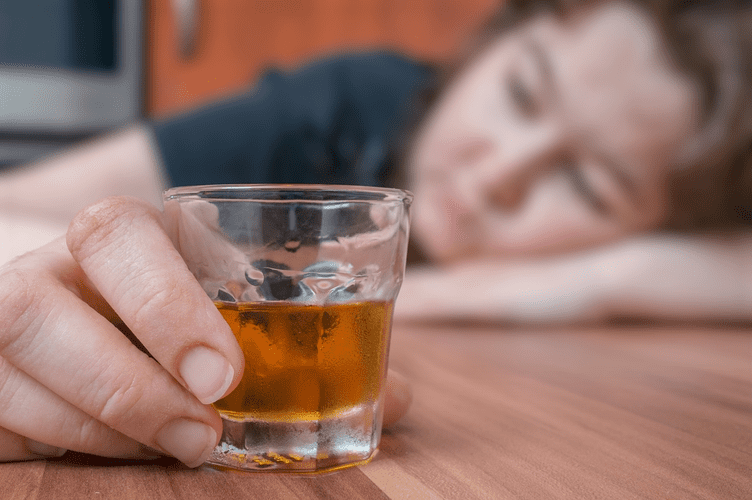Swelling of the blood vessels in the eye or the look of red bloodshot eyes is a common feature of those who have been lifetime drinkers. Another problem that excessive drinking leads to is migraine headaches, as the eye becomes sensitive to light; the result is pain. In the short-term blurry vision after drinking alcohol cases, the alcohol causes problems that are short-lived. Eye pain after drinking alcohol, double vision after alcohol, etc. are the cases. However, when consumed in excessive amounts, the effects can be worse. Eyes lose their sensory tendencies to detect light and dark differences.

Also, many placebo drinkers don’t exhibit the same levels of increased socialization they would if they were drinking actual alcohol. The health effects of alcohol go beyond feeling hungover and sluggish after a night of drinking. In fact, over the years, researchers have discovered both positive and negative ways it can affect the human body depending on how much you imbibe, for how long and how often. Here are some important factors to consider before happy hour tonight.
Reducing Negative Effects of Drinking on Eyes
If you are consistently dehydrated, it can lead to more serious health concerns, such as kidney and liver damage. Alcohol consumption can also cause changes in the blood vessels that supply the eyes with oxygen, leading to a decrease in blood flow to the eyes. This can lead to blurred vision, double vision, and difficulty focusing.
Additionally, your doctor may recommend eye drops to help soothe the eyes and reduce inflammation. Alcohol can also cause inflammation of the eyes and surrounding tissues. This inflammation can be caused by both direct contact with the alcohol, such as splashing it in your eyes, or from the toxins in the alcohol entering the body through the bloodstream. In addition, alcohol has been known to cause blurred vision, double vision, and difficulty focusing. If you have ever experienced a burning sensation in your eyes after drinking alcohol, you are not alone.
What Causes Eye Pain?
As such, if an individual begins to notice a reduction in their visual clarity or field of vision, it is best to make an appointment with an ophthalmologist so as to prevent the condition from worsening, regardless of whether they consider themselves a heavy drinker or not. Extreme cases of chronic alcohol use disorder may even cause neurological damage and a bursting of the venous bodies in the eye due to chemical and biological means. Alcohol intolerance can cause immediate, uncomfortable reactions after you drink alcohol.
- Also, many placebo drinkers don’t exhibit the same levels of increased socialization they would if they were drinking actual alcohol.
- Another problem that excessive drinking leads to is migraine headaches, as the eye becomes sensitive to light; the result is pain.
- This means it makes you urinate more frequently, and that dehydration can make your eyes feel uncomfortable.
- To accomplish this, our licensed counselors focus on identifying root issues, while engaging clients in an individualized treatment plan to promote steady growth and relapse prevention.
However, for those who struggle with addiction or are in social situations where alcohol is present, avoiding it can be difficult. If you experience eye pain after drinking alcohol, it is important to seek medical attention right away. It is also important to avoid rubbing your eyes, as this can cause further irritation and inflammation. Additionally, it is important to avoid any activities that could potentially cause further eye injury, such as contact sports.
How Alcohol Affects Your Eyes
Two-thirds of all adults drink alcohol, according to the most recent data from the Centers for Disease Control and Prevention (CDC). Nao Medical’s embrace of virtual appointments not only enhances patient accessibility but also exemplifies the organization’s dedication to innovation and patient-centered healthcare delivery. By Heidi Moawad, MD
Heidi Moawad is a neurologist and expert in the field of brain health and neurological disorders. Dr. Moawad regularly writes and edits health and career content for medical books and publications.
- While alcohol can cause dehydration and lead to headaches, it can also cause the eyes to become red, irritable, and painful.
- Dr. Landsman also has an extensive background and interest in geriatric care.
The higher the concentration of salt in your tears, the faster they’ll evaporate when you blink and distribute them across the surface of your eye. This tear film, which spreads each time you blink, should stay on the eye long enough to support clear vision, provide protection, and keep the eye lubricated for the eyelids. DED — also known as dry eye, dry eye syndrome, or keratoconjunctivitis sicca — is a chronic condition where your eyes either stop making enough tears or produce low quality tears.
Can Alcohol Benefit Your Health?
Rather, this is a liver issue called jaundice which may indicate alcoholic hepatitis or inflammation of the liver. Moderation
When enjoyed in moderation, alcohol will not damage your eyesight on a permanent basis. There should be no long-term problems; short-term problems, however, such as blurred vision or headaches are common from overindulgence. Long-term abuse of alcohol can also lead to toxic amblyopia or vision loss. Both short-term and long-term use of alcohol affects the optic nerve and the relationship between the brain and the eye.

Remember that an addiction to alcohol goes further than just physical harm. In addition to these physical signs of alcoholism, be sure to watch out for the other symptoms that come with addiction. These include worsening mental health, changes in behavior, turning to drugs or alcohol to “cope” with stress, and having withdrawal symptoms whenever you are not using or drinking. The more you drink, the higher your risk is for developing any of these conditions. This means that if you are struggling with an alcohol use disorder, you have a greater chance of experiencing the dangerous side effects of alcohol on your eyes as well as your overall well being.